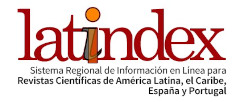SHIFTS POPULACIONACIONAL DAILY TO CHAPECO RELATED TO EDUCATION
Keywords:
Population Shifts. Middle Cities. Chapecó.Abstract
The constant economic changes provide different uses of geographic space, building new networks of relationships and spatial connections between the cities, raising different areas, new studies, analyzes and interpretations, such as those being made in ReCiMe. In this context, this article interprets the dynamics of productive structuring of Chapecó in the region, based on the assessment of population commuting related to education that happen to Chapecó/SC, both locally and in regional scale. With the extraction of microdata from the IBGE, Census 2000 and 2010, it recorded, separately, the number of people living in a municipality and working and/or studying in another. Mapped to cities origin of these swinging motion of the impact, and the percentage of each of the coverage area of both micro-regions RS as for SC. The absolute values of shifts almost tripled from 2000 to 2010, and expressive attractive and centralizing power Chapecó as the generation of employment and service delivery in education. In addition, they were conducted fieldwork and handling of the e-MEC database, obtaining higher education information in Chapecó, which help to understand this regional educational hub. To survey the elementary schools, middle and preschool we used Educational Census data 2012 INEP, which also confirmed the attractiveness of Chapecó this distance to reach, reinforced situation compared its centrality to educational services for municipalities Sample presenting more than five institutions of higher education in the e-MECDownloads
Published
2018-02-07
How to Cite
Maia, C. M. (2018). SHIFTS POPULACIONACIONAL DAILY TO CHAPECO RELATED TO EDUCATION. Revista Brasileira De Gestão E Desenvolvimento Regional, 14(1). Retrieved from https://www.rbgdr.net/revista/index.php/rbgdr/article/view/3496
Issue
Section
Artigos
License
Authors who have their papers accepted and published in the Brazilian Journal of Regional Management and Development must agree to the copyright policy CC BY https://creativecommons.org/licenses/by/4.0/.
If the article is accepted for publication, the copyright is automatically assigned to the Brazilian Journal of Regional Management and Development.
















